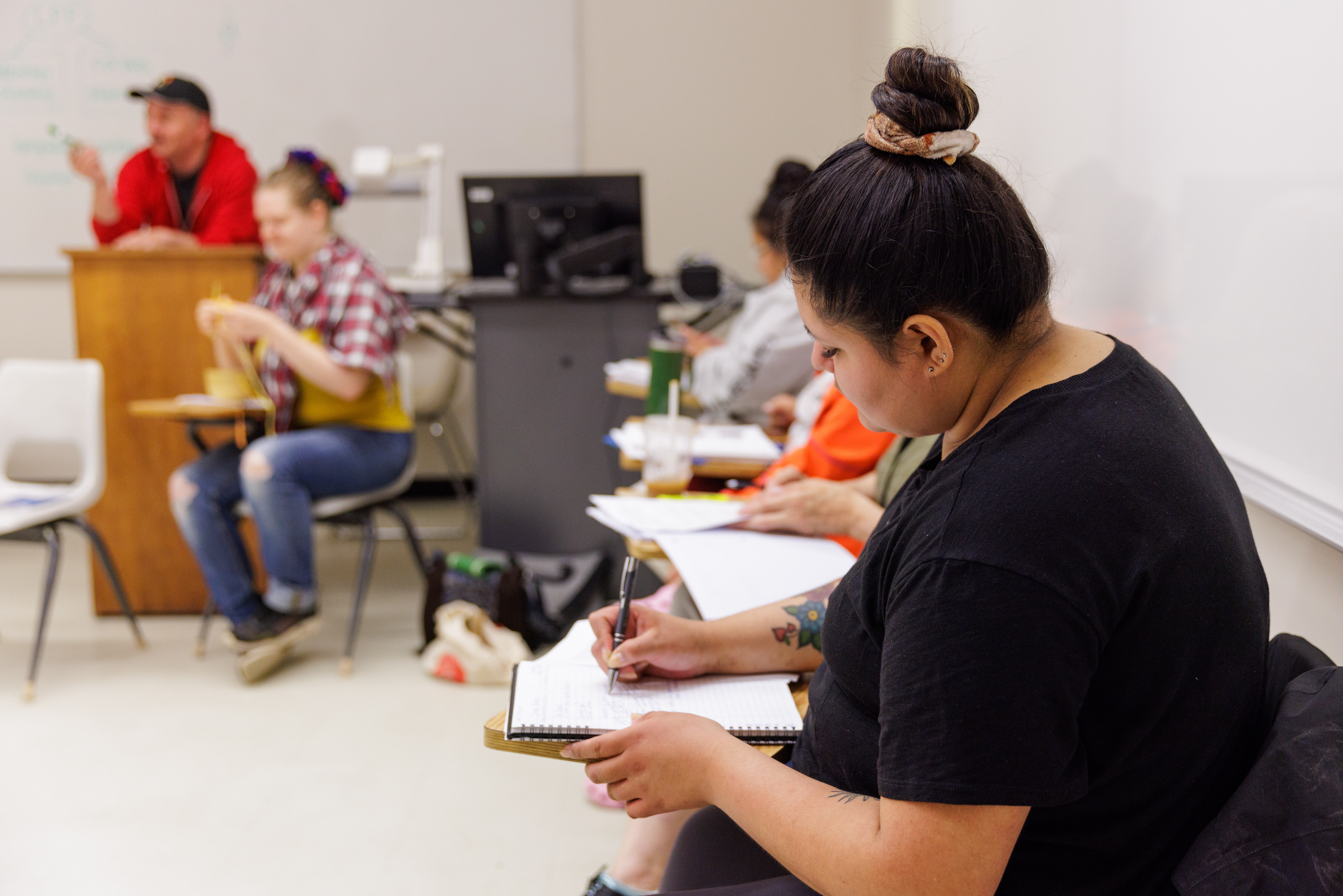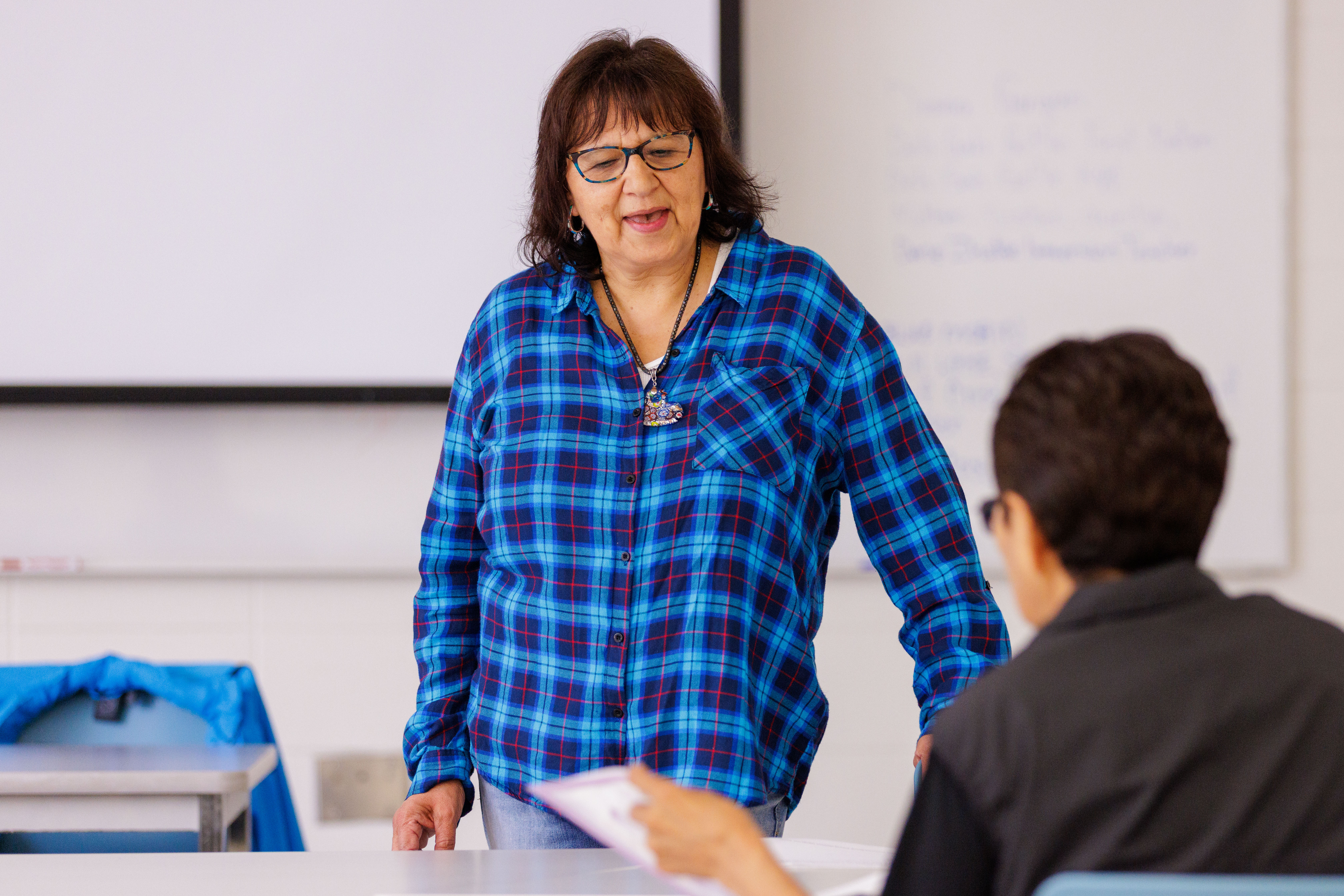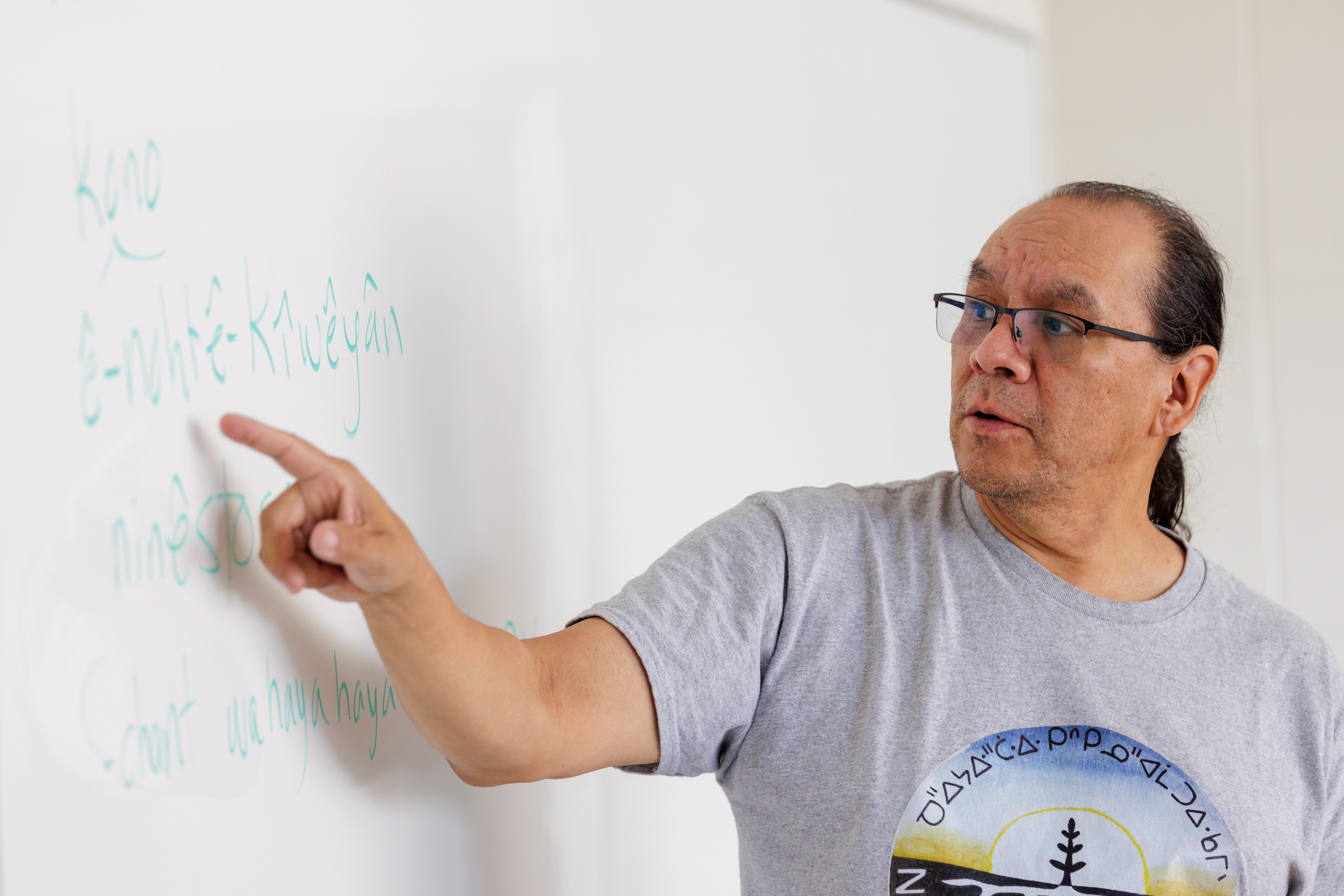Courses
Summer School
Thank you for your interest in our Summer School Program! We are currently exploring new avenues for our program and are still in the process of planning this year's summer school. The 2025 Summer School will be held from July 7th-25th, and we will be sharing more detailed information about classes in the coming months. If you are interested in being placed on an email list to receive updates regarding the 2025 summer school program, please email cilldi@ualberta.ca.
Certificates Program
Through this certificate, students will learn about:
- the five key areas of community language planning
- ways to assess their community's status with respect to these areas
- strategies for bolstering language use in the home and community
- ways to adapt successful strategies to their local contexts
- the cyclical process of developing, implementing, and evaluating community language plans
Through this Certificate, students will learn about:
- evaluating audiovisual recording equipment
- planning recording sessions
- making quality audio and video recordings
- editing and producing audiovisual resources
- distributing resources across a variety of platforms
The purpose of this Certificate is to provide learners with an understanding of how to document, describe and teach the sounds of their language.
Through this Certificate, students will learn about:
- the inventory of sounds in their language
- using the International Phonetic Alphabet
- describing the articulation of sounds in their language
- producing transcriptions of speech in their language
- identifying challenging sounds for second-language learners
- effective strategies for teaching pronunciation
The purpose of this Certificate is to provide learners with an understanding of how to document, describe and teach the sounds of their language.
Through this Certificate, students will learn about:
- the inventory of sounds in their language
- using the International Phonetic Alphabet
- describing the articulation of sounds in their language
- producing transcriptions of speech in their language
- identifying challenging sounds for second-language learners
- effective strategies for teaching pronunciation
The purpose of this Certificate is to provide learners with a deeper understanding of the methods of linguistic analysis, and how to apply those to the more complex grammatical structures of their own language. This is a key skill which can support learners, teachers, curriculum developers and others involved in language revitalization.
Through this Certificate, students will learn about:- how linguists approach more complex grammatical phenomena
- describing more advanced structures in their own language
- discovering patterns through analysis of text
- further developing a community-oriented grammar sketch

Education Classes
This course is an introduction to teaching languages and reading. You will learn how to plan for language teaching sessions, and strategies for supporting the spoken and written use of Indigenous languages in the classroom by both teachers and students.
This course is an introduction to strengthening the connections between language and culture. You will learn about strategies communities are using to sustain their traditional practices, and how that plays a vital role in the maintenance and revitalization of their languages.
This course is an introduction to reaching and learning Indigenous languages as a second language. You will learn about a variety of immersion teaching methods that support children and adults in developing their skills in both understanding and speaking the language.
This course is an introduction to language materials development. You will get hands-on experience in designing and creating a wide range of print and digital resources that support language learning in the classroom.
This course is an introduction to the field of language assessment. You will learn various strategies for helping to chart the language-learning progress of both children and adults, and how to use that information to target improvements in your own teaching methods.
This course is an introduction to using storytelling to teach Indigenous languages. You will learn how to incorporate elements of drama, movement, teamwork and improvisation to engage language learners and connect them with the oral traditions of your community.

nêhiyawêwin (Plains Cree) language courses for beginning learners
These two courses are an introduction to learning a specific Indigenous language through immersion. It is targeted to beginning learners who are early in their language-learning journeys.
